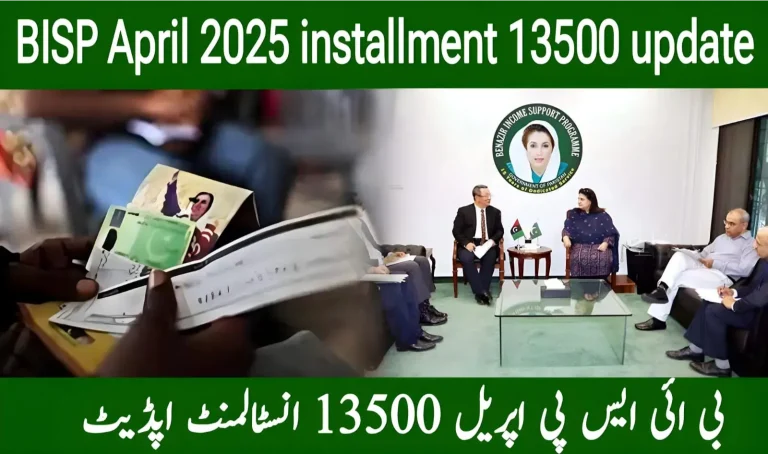BISP Strengthens Anti-Fraud Measures with Internal Monitoring & Third-Party Audits

The Benazir Income Support Programme (BISP) has taken a major step forward in ensuring transparency and eliminating corruption by introducing enhanced internal monitoring systems and third-party audit mechanisms. This move aims to clamp down on fraud, mismanagement, and political favoritism that have long been concerns in social welfare distribution.
✅ Why Was There a Need for Reform?
BISP is Pakistan’s largest social safety net, providing financial assistance to millions of low-income families. However, in recent years:
- Allegations of political favoritism in beneficiary selection surfaced.
- Audit reports flagged weaknesses in monitoring and fund management.
- Manual systems lacked transparency, allowing room for manipulation.
- Global donors, including the World Bank and Asian Development Bank (ADB), urged stronger oversight.
🛡️ What Changes Has BISP Made?
To restore public trust and improve the programme’s effectiveness, BISP has rolled out a multi-pronged approach:
1. Enhanced Internal Monitoring Systems
- Real-time data tracking of beneficiaries.
- Automated red flags for duplicate or suspicious records.
- Internal audit teams empowered to perform spot checks.
2. Third-Party Audits
- Independent audit firms now assess financial and operational processes.
- Third-party validation reduces the risk of internal bias or cover-ups.
- Transparency reports are expected to be published periodically.
3. Whistleblower and Complaint Mechanisms
- Confidential complaint hotlines and digital portals introduced.
- Citizens can now report fraud without fear of retaliation.
- Follow-up is ensured through dedicated grievance redress units.
🎯 Key Benefits of the Strengthened Mechanisms
- ✅ Reduces chances of corruption and misuse of funds
- ✅ Builds trust with global donors and the public
- ✅ Ensures that financial aid reaches the truly deserving
- ✅ Prevents political interference in beneficiary selection
📊 How This Compares to Global Best Practices
Countries with successful welfare systems like Brazil (Bolsa Família) and India (Aadhaar-linked DBT) rely on:
- Digitized beneficiary databases
- Regular third-party audits
- Strict eligibility verification
BISP is now aligning its systems with such internationally accepted standards.
🙋 Frequently Asked Questions (FAQs)
What is internal monitoring in BISP?
It refers to the internal processes and tools used by BISP to track activities, identify issues, and ensure that the programme runs transparently.
Who conducts third-party audits?
Independent, certified audit firms approved by regulatory authorities and often selected through a competitive process.
Can the public access audit results?
Yes. In an effort to remain transparent, BISP intends to publish summary findings of audits on its official website.
How does this reduce political favoritism?
By introducing data-driven selection and independent audits, personal or political influence is minimized in the selection of beneficiaries.
How can I report fraud or misuse?
BISP has launched a secure complaint portal and hotline. Reports can be filed anonymously and are followed up internally.
🧾 Conclusion
The recent measures taken by BISP reflect a serious commitment to reform and transparency. By strengthening internal monitoring and enabling third-party oversight, the programme is not only addressing long-standing issues of fraud and favoritism but also setting a new benchmark for social welfare systems in the region.
For citizens and stakeholders, this means a more reliable, fair, and effective safety net — one that genuinely uplifts the most vulnerable segments of society.
Read this also : BISP 2025 Retail Payment Model: Easy, Safe & Transparent
Read this: https://jbms.pk/waseela-e-taleem-conditional-cash-for-education-bisp/
Disclaimer: This article is for informational purposes only. We are not affiliated with any government agency. For official updates, visit the official BISP website.
This content is based on publicly available information. We are not affiliated with BISP or any government body. Read full disclaimer here






